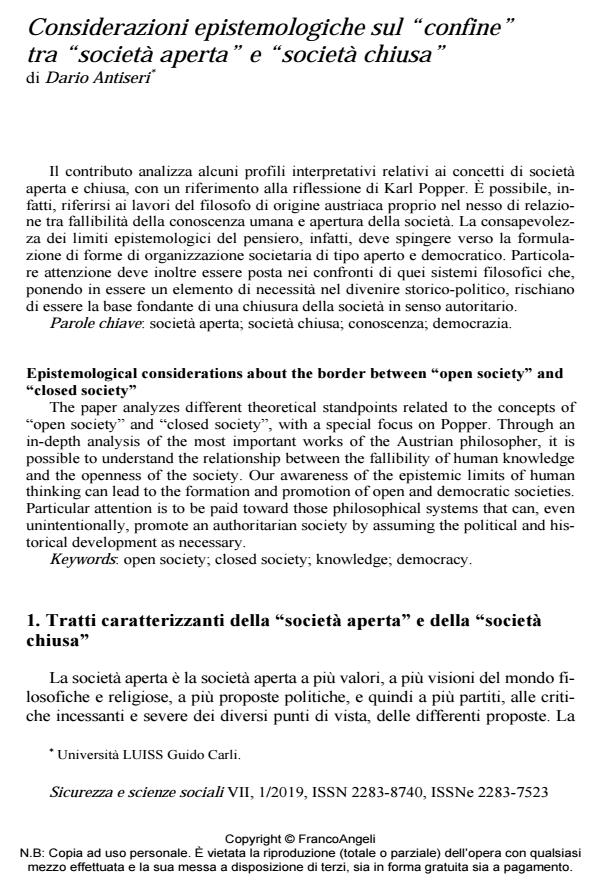Epistemological considerations about the border between "open society" and "closed society"
Journal title SICUREZZA E SCIENZE SOCIALI
Author/s Dario Antiseri
Publishing Year 2019 Issue 2019/1
Language Italian Pages 9 P. 43-51 File size 191 KB
DOI 10.3280/SISS2019-001005
DOI is like a bar code for intellectual property: to have more infomation
click here
Below, you can see the article first page
If you want to buy this article in PDF format, you can do it, following the instructions to buy download credits

FrancoAngeli is member of Publishers International Linking Association, Inc (PILA), a not-for-profit association which run the CrossRef service enabling links to and from online scholarly content.
The paper analyzes different theoretical standpoints related to the concepts of "open society" and "closed society", with a special focus on Popper. Through an in-depth analysis of the most important works of the Austrian philosopher, it is possible to understand the relationship between the fallibility of human knowledge and the openness of the society. Our awareness of the epistemic limits of human thinking can lead to the formation and promotion of open and democratic societies. Particular attention is to be paid toward those philosophical systems that can, even unintentionally, promote an authoritarian society by assuming the political and historical development as necessary.
Keywords: Open society; closed society; knowledge; democracy.
Dario Antiseri, Considerazioni epistemologiche sul "confine" tra "società aperta" e "società chiusa" in "SICUREZZA E SCIENZE SOCIALI" 1/2019, pp 43-51, DOI: 10.3280/SISS2019-001005